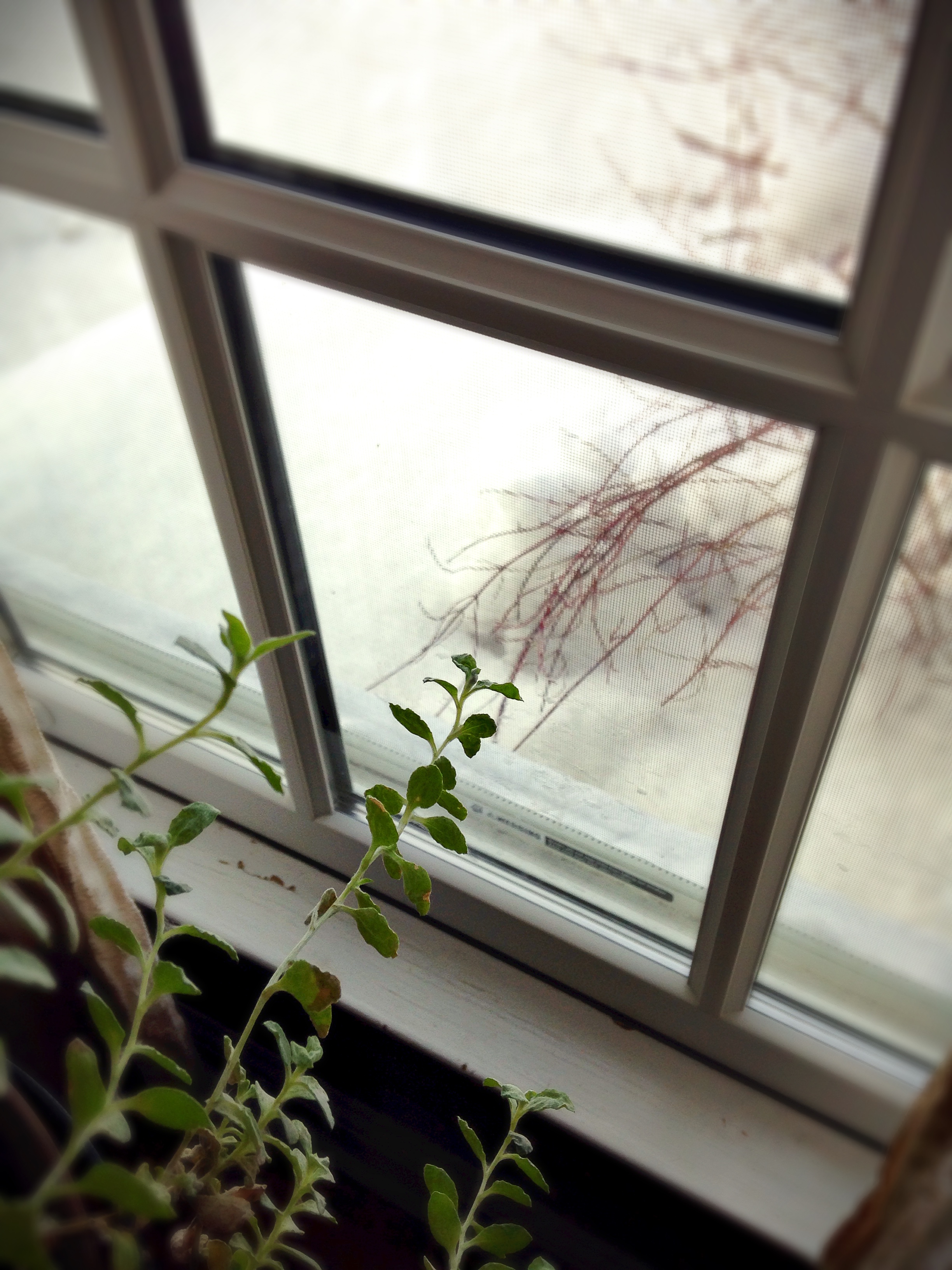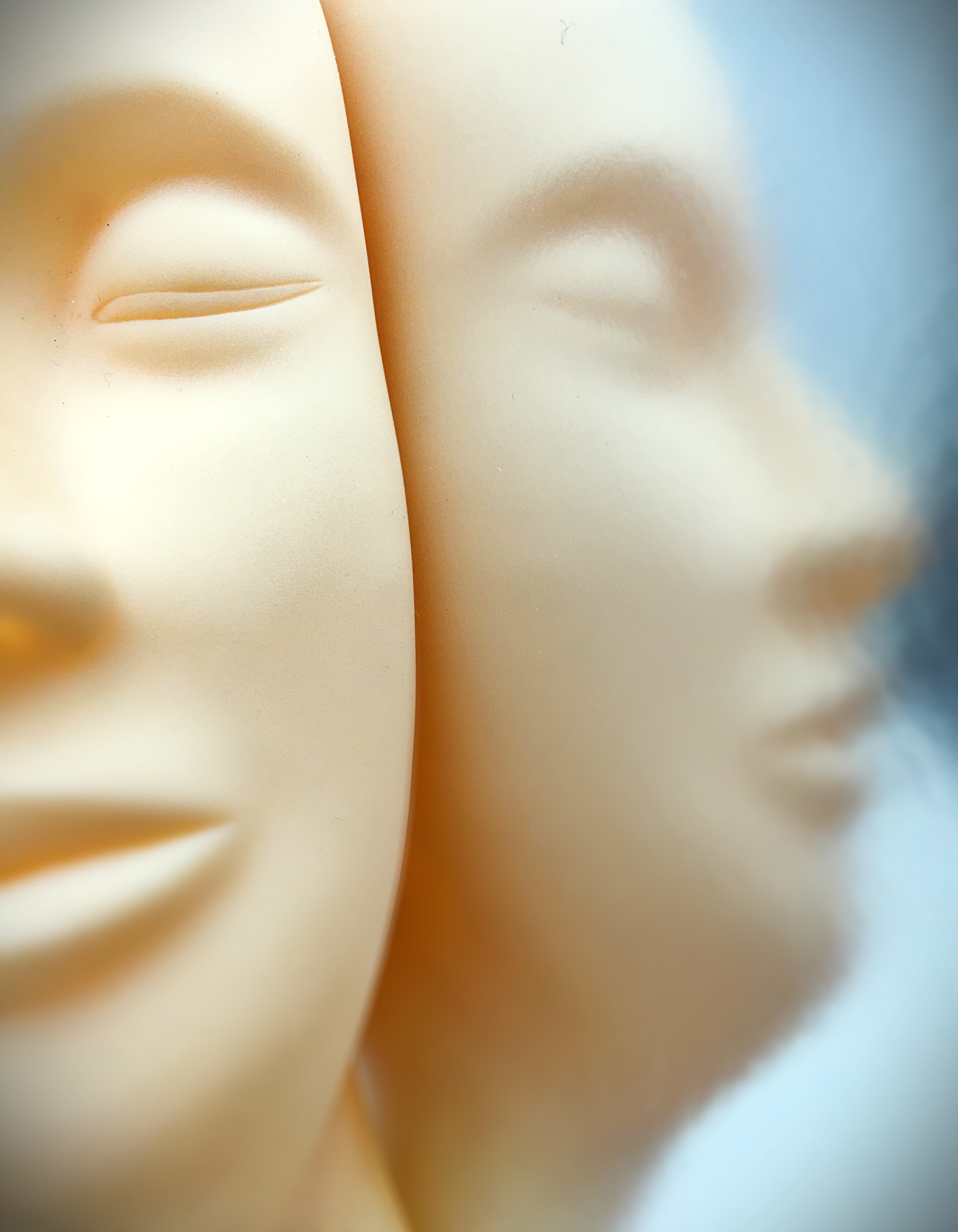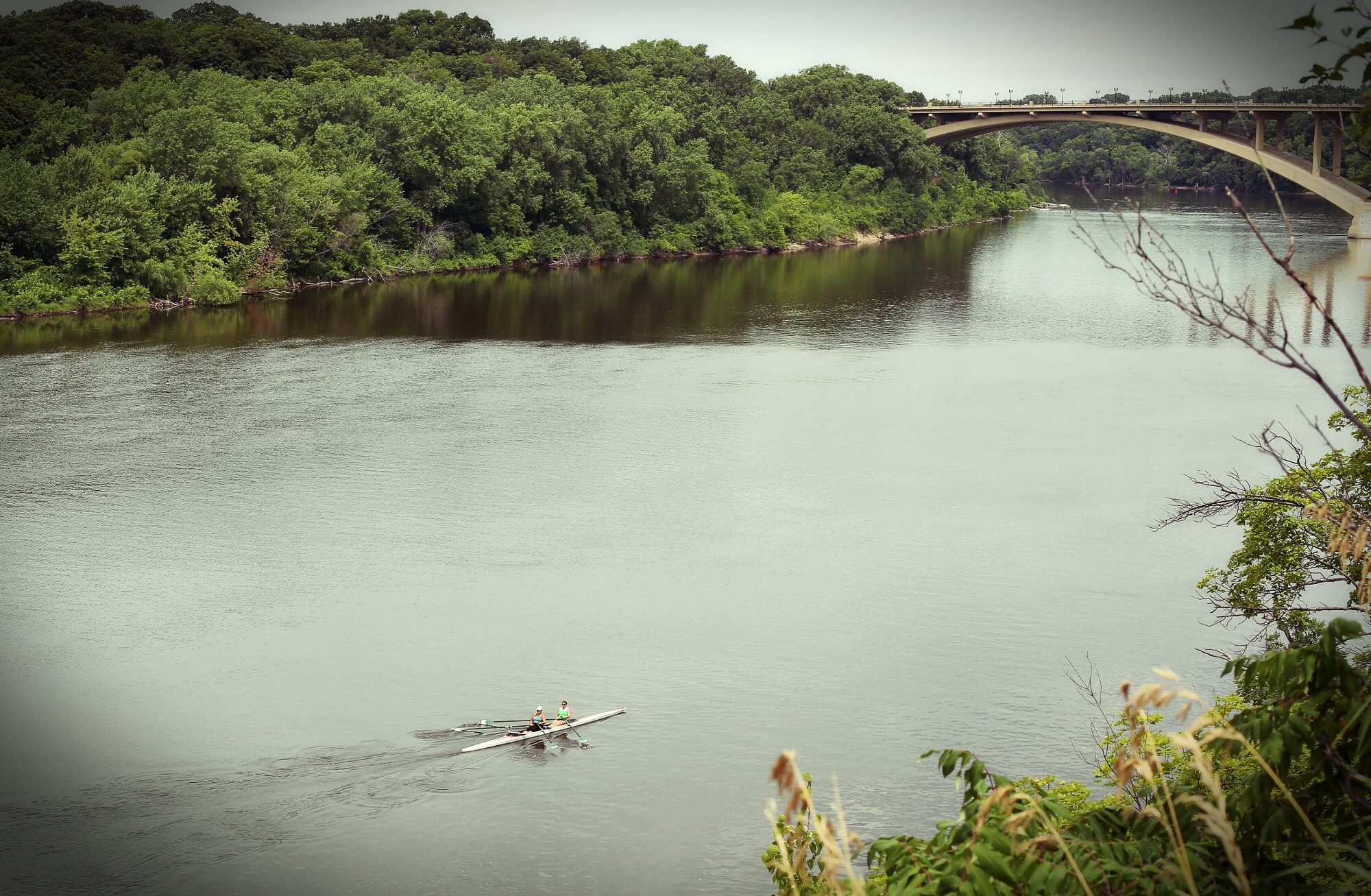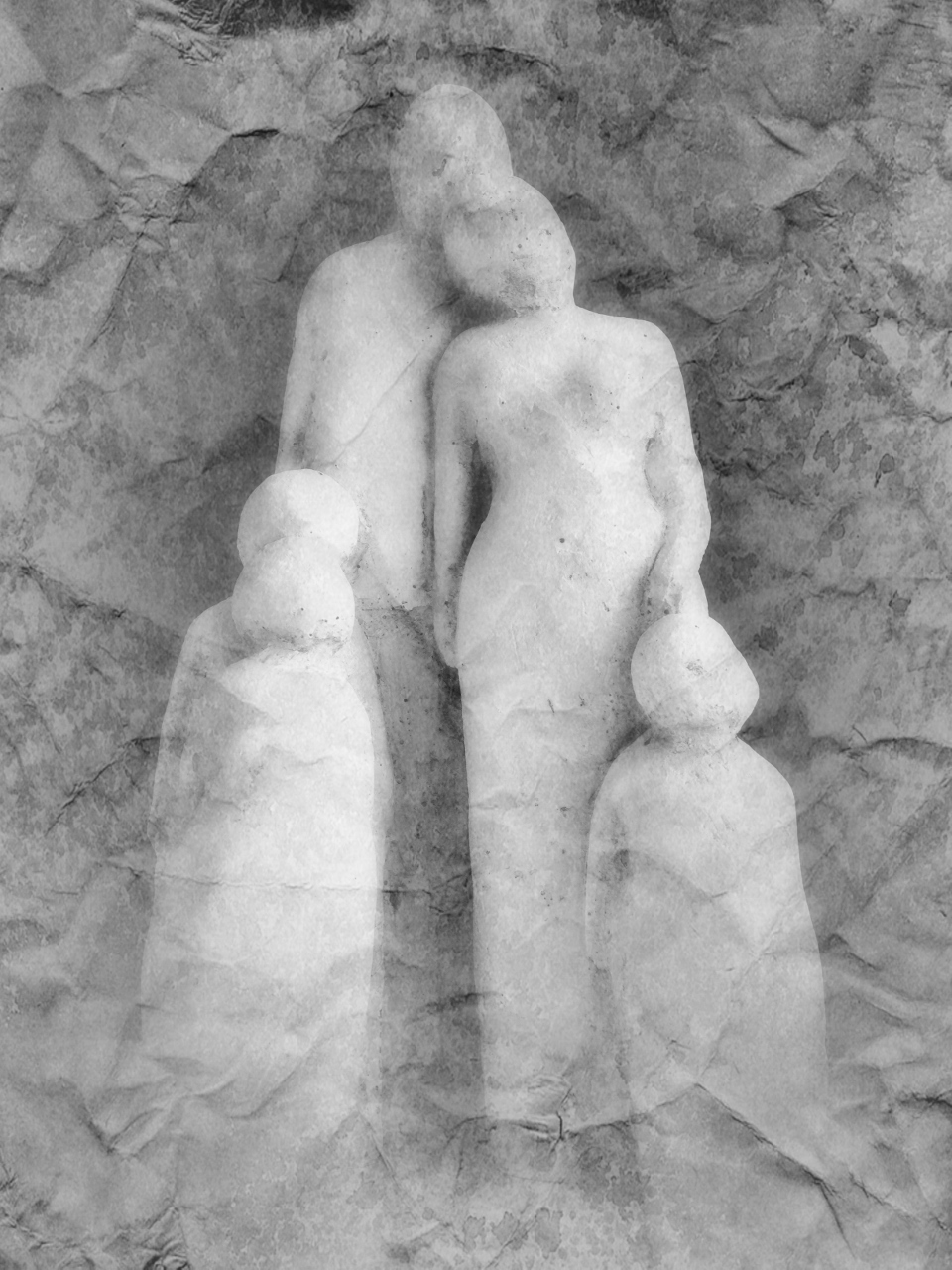
By Deborah Linder
I stand before the mirror in the hotel room with my legs planted wide and my arms outstretched in a V. I’ve never attempted a power pose before, but I’ve heard it’s a great way to boost your confidence. Apparently, just mimicking the stance of a powerful person can make a poser feel powerful, too. It’s also been suggested that the pose can raise testosterone and lower cortisol levels and that the subsequent hormonal adjustment will reduce anxiety. Since, at this moment, my mouth is parched, my palms are clammy, and my heart is palpitating wildly, anxiety reduction seems like an excellent idea.
I hold the pose for a full minute. It occurs to me that this is the body language equivalent of a positive affirmation, a fist-pump, a Go get ’em, Tiger. And while I’m normally skeptical of pep talks, tonight I’m willing to suspend disbelief.
As I stare at my expanded self in the mirror, I am reminded of the time I was hiking in Glacier National Park. Posted along the trails were warnings of mountain lion sightings and instructions on what to do when confronted with a big cat. “Make yourself appear as large as possible,” the signs directed. “Act defiant, not afraid.”
The three men I am about to meet are not mountain lions, I tell myself.
Nor am I easy prey.
Nonetheless, I have never felt more vulnerable.
Now I’m in the elevator, in a free fall of floors passing too quickly. Sixteen, fifteen, fourteen… I’m tempted to push all the buttons to buy time, to catch my breath. Somehow, even after decades of waiting, I’m still not ready.
But it’s too late: The elevator doors open onto the ornate marble lobby. I’d chosen this majestic old hotel for its substantial heft, its art-deco grandeur, its storied history and roster of illustrious guests. But Winston Churchill and Elvis Presley are no longer on the premises, and at this moment, I’m surprised by the seeming-ordinariness of the hotel.
Clusters of people stand laughing at the entrance of the restaurant, others peer at their phones from overstuffed chairs. The clerks behind the desk don’t even bother looking up as I stand alone for the last time. A neighboring elevator arrives with a ping! and I step out.
The inevitable awaits.
There, at the far end of the lobby, are my mystery dates. They are bigger than I expected, solid, strong presences, a triumvirate of maleness. Ruddy-complected. Short-cropped, grey-blond hair. Button-down shirts. Shifting stances. Anxious smiles.
And now I am walking towards them, a preordained gravitational pull, even as I am conscious that each step brings me closer to a place I’m not sure I want to be. The lobby feels, at that moment, insurmountably vast. As I finally approach them, I look quickly from one face to another, struck suddenly by the pairs of dark blue eyes regarding me. There’s something disconcertingly familiar about those eyes, the blue a hue I recognize, a hue I know from seeing it every day. Those eyes, their eyes, are the same as mine.
Because, after all, the men are my brothers.
To be precise, my half-brothers.
Now I am hugging them, one at a time, and they give good hugs, full squeezes, no holding back. They start to introduce themselves but there’s no need—I know them already. I’ve studied their faces, their photos, the images that have filled my computer and mind since all this began.
•••
A few months earlier I had sent three identical letters to three separate addresses:
“Dear ___,
I’m writing to you—and concurrently to your brothers—as your half-sister. I have no idea if you know of my existence; if not, I will explain that my mother was your father’s first wife. Their marriage was short and soon after my mother remarried it was decided that I should be adopted by my stepfather.”
In the letter I explained that I’d had no contact with anyone from my biological father’s family since the 1960s and that, in fact, I had done my best to obliterate reminders of my early life, specifically those relating to my father. It was only recently—when, surprising even myself—I’d spontaneously searched the Internet search and discovered his obituary.
What I didn’t explain was that I closed and re-opened the laptop three times before making it to the end of the death notice. The most difficult part to read? Not that my father had been young when he died or that his type of cancer would likely have been protracted and painful. No, the worst part was the list of survivors. Specifically, the absence of my name from that list. Could there be any wound deeper than a denial of my very existence? None perhaps, save the revelation of three other names, those of my father’s sons.
For a long while, I told no one of my discovery. It was too big. I was uncertain what to do with the information, uncertain, even, of how I felt. Yet I whispered the names of those unknown men to myself and I doodled their initials on the backs of envelopes, just as I’d done years earlier with my first crushes. According to the obituary, they all lived near one another, in the same state where my father had died. Other searches revealed little else. Who were these guys? What did they know about me? Why had they never been in touch? And, alarmingly, what else didn’t I know? I began to wonder if our paths had ever crossed. And if so, would we have recognized each other? Were there traits we shared? Interests, predilections, hopes, fears? Not even Detective Google could help me there.
I allowed myself to imagine what it could be like to reveal some version of the truth: Oh, yes, I have three brothers. I’m the eldest of four, with three younger brothers. Even though we live far apart, my brothers and I are very close.
Until one day, tired of imagining and yet preparing myself for the worst, I mailed them each a letter.
•••
Now we stand grinning at one another in the hotel lobby, talking at once about my trip and their traffic and how it was so easy to recognize me, until finally, it’s clear that somebody needs to take charge, and I guess that should be me because after all, I’m the oldest in the family and even though for my whole life—at least until now—I was an only child, one with a distinct lack of experience in birth order dynamics. I’ll do it, I’ll take charge. That is the role of the eldest, right? Which I hope does not come as too much of a surprise to the oldest brother, the one who’s used to taking charge in the family.
“Should we head out?” I say and we start toward the stairs before one of them asks, “Okay, where should we go?”
I find this deeply unsettling. They haven’t thought about this before now? We’d arranged this date nearly a month ago and yet no one has thought beyond this moment? It hasn’t occurred to them that something needs to happen, that we can’t all just remain here in the pretty lobby of this hotel in Cincinnati all evening?
Five minutes in, this sister is already exasperated with her brothers. And it occurs to me that perhaps this lack of planning is just the beginning of the things that are different about us.
“Well,” I say, “How about somewhere we can go for a drink?” It’s clear to me that one of us, at least, could really use a drink.
There’s a brief conference. It’s obvious that none of them frequents the bars in town, which is, I decide, probably a positive. There’s a little bit of bickering: “No, that place’s no good,” “Not on a Friday night,” “Nah, we’d have to get in the car to go there,” before the youngest says he knows a place a few blocks away. And so we step out into the warm spring evening.
Arranging ourselves on the sidewalk proves awkward. Demonstrating gentlemanly politeness, they all want me to go ahead. Or maybe they’re just afraid to walk with me. Finally, after a bit of jockeying, we pair off and start down the street.
“Man, you’re tall,” my walking partner says, and it’s true that at five feet eight, I’m not a small person. At this moment, though, standing next to his six-foot plus stature, I don’t feel tall at all. In fact, suddenly, I feel like a little girl.
And I’m reminded that the last time I was part of their family, I was a little girl.
What remains of that child wants to put our her hand to be held, to feel safe and reassured that taking this risk has been the right thing to do. But I don’t yet know that, nor do I really know these men and so instead, I tuck my hand into my pocket and try to keep up with them as we head down the street.
•••
As it turned out, my letters proved to be lit firecrackers that had landed in their mailboxes. No real damage was done, but a lot of commotion ensued. “It was quite a shock for me and still is,” one of them wrote. Another explained that, “I am … trying to face this as reality.” It was surprisingly reassuring to know that they had been unaware of the circumstances all these years, and to know, too, that unearthing that long-ago secret felt significant to them as well. A third wrote, “Your letter did indeed catch me and my brothers by surprise. We did not know any of this. We are all … trying to process this information.”
And thus began the exchange: emails, letters, photographs, confidences. Giddy, I sent off friendly notes and flattering photographs. There was so much to know, to discover. Like the little frisson that accompanies flirtation, it felt exciting and strange to have new people interested in my life story. And for those long-married men, I suspect it was similar. After all, when was the last time that anyone had expressed genuine curiosity about what they thought, how they felt, who they had wanted to be, and who, in fact, they were?
•••
We settle into a booth and order drinks. Thankfully, everyone is drinking, even the one with a medical condition that makes it unadvisable. “Except every now and then,” he tells me. I’m both glad that this is one of those times and worried that it’s a genetic disease I’ll eventually inherit.
They reminisce about the day my letters arrived. “Thought you were after Dad’s money,” one of them admits. “I thought there was no way this could be true,” one says. When confronted, their mother, my stepmother—a woman I vaguely remember meeting but had never really known—eventually confirmed my story. Their father hadn’t wanted them to know, she told them, although she now regrets having kept quiet. Dad was a very private person, the men tell me. Secretive, even.
We order another round of drinks.
I bring out a photo album I’ve put together, a highlights reel of my life. This photographic history seemed like a good idea when I was planning the trip, a way to catch them up on my last fifty years. There are pictures of what I now think of as my “real” family standing in front of houses in California, in Chicago, in St. Louis, and in Lancaster, Pennsylvania. And much earlier, worn snapshots from when I was a toddler, although none with our shared parent. I hear myself chattering a monologue, eager to fill them in, introduce them to everything I’ve been and have become. That’s me on study abroad, have you ever been to the south of France? And here’s my college graduation, and, oh, yes, that’s my wedding day. San Juan Capistrano? It’s in Southern California, where I was living at the time. And here’s Henry as a baby, what a rascal, and here he is holding Andrew at the hospital, nearly four years later. I know, they don’t look much alike. That black Lab? Let’s see, that would be Lucy, or maybe Stanley, hard to tell, but both really great dogs.
It suddenly occurs to me that this compilation of photographs will come in handy at my funeral some day. I’ve seen slide shows like that, Kodak moments commemorating a person already gone. Hell, maybe that’s happening right now. The person in the album has already disappeared, an only child replaced—tonight—by a woman with three (half) brothers.
The men flip through the album quickly, occasionally glancing up as if to check the resemblance of that younger person in the photo to the woman now sitting across from them. Stop turning the pages so fast and pay attention, I want to tell them. There will be a quiz. Who is my younger son named for? How did I meet my husband? Where did we last go on vacation? It worries me that they might not appreciate the importance of backstory.
But as the night goes on, the possibility of catching up with one another’s lives seems increasingly remote. As we continue talking I have a hard time remembering which one of their daughters is a karate black belt and which is studying to become a nurse. Whose job requires travel? How old are their boys again? Which one of them likes to ride motorcycles? (That one, at least, is easy: It turns out they all do.)
When we order food, I learn that one of the brothers has a shellfish allergy. For a moment, I marvel at the vagaries of biology. How is that the other two – and me – have been spared? Accustomed to singularity, I feel awakened to the idea of commonality.
One of them has ordered a Scotch egg as an appetizer and I am offered a bite. I hesitate, not wanting to be rude, yet reluctant to press my lips onto the same surface that his touched. Suddenly this all feels uncomfortably intimate. Dad was a very private person, I hear them say.
My husband has sent along a list of questions to keep the conversation flowing. What’s the scariest thing you’ve ever done? Is there a family tradition that’s meaningful to you? Which song do you play really loud when you’re alone in the car? As much as I’m grateful for his thoughtfulness, as much as I want this to be a light-hearted romp of a family outing, I can’t help but wonder if the situation is actually less comic than tragic.
For what does this meeting represent, anyway? The word “reunion” has such a cheery lilt. Are we reunifying? But we are not East and West Germany, although it strikes me as portentous that my separation from their family was approximately the same length of time as those two states spent apart. Nor are we a band that is getting back together thirty years after its records went golden. The cheesy lyrics to a song, “reunited and it feels so good,” float across my mind and I swat at them with an inward, Nope, not exactly. Which feels like a betrayal because the men sitting here with me right now are kind and decent. They are funny and sincere and, I suspect, dependable. They are, indeed, solid. I bet they’d help me build a backyard deck or teach me to shoot a gun. In fact, if there were a Dating Game equivalent for choosing a brother I would want to pick all of them. Plus they seem ready to welcome me into their clan. Maybe I’d like to bring my family to their Thanksgiving? I’m asked.
But when I try to imagine my husband and our two sons giving up our own holiday traditions—abandoning the neighbors with whom we always share the meal, relinquishing the special tortellini soup we have as our first course, foregoing the after-dinner walk, the cheese course, the assigned seating we’ve tweaked for years—the concept of What Might Have Been veers abruptly into What Will Never Be.
•••
When I was a girl, an only child growing up in a lonely house, I yearned for siblings. How much better life would be if I had someone to catch my Frisbee, to deflect my parents’ focus, to help me understand boys. I was aware of the sacrifices I’d have to make: the endless arguments about the bigger piece of cake, riding shotgun, or being the first to press the elevator buttons. I knew from friends that familial arguments would likely include the phrase, “That’s not fair!” and that, as an only child, I’d have to become less spoiled and more adept at sharing. That was all fine with me. I’d have traded my frilly canopy bed for one with bunks any day, especially if it came with a brother or sister to giggle with in middle of the night.
But I am no longer that girl.
While I like these men, and while I have tried so hard to make myself likeable, nay, loveable, to them, I’m not sure there’s a space we can all inhabit. I’m suddenly skeptical that the overlap between my life and theirs is enough for a real relationship to ever develop. Not now, not after so many years. Any scientist will tell you that blood is a weak binding agent. Without the underpinning of a shared history, does our kinship offer anything other than a possible source for a replacement kidney?
•••
Now the meal is over. Before we head out, I ask to take their picture. And because they’re still willing to humor me, they huddle together at one end of the table, pressed closely against one another and yet comfortable together. They smile and I click. Is it significant that the only photo I have from that night is one in which they are apart from me? No matter. I will text the photo to my family back home who are waiting to hear how my night has unfolded. “Those eyes!” my son will immediately text in response. “They’re your eyes!”
Later, back in the hotel elevator, a friendly couple will ask if I had a good evening. “Oh, you know,” I tell them. “Just a family thing. Out to dinner with my three brothers.” They nod and smile and I smile in return. I don’t acknowledge how long I have anticipated being able to speak those words or how exquisite they feel as they spill carelessly from my mouth.
And maybe, for now, that is enough.
•••
DEBORAH LINDER writes fiction and creative nonfiction in Ann Arbor, Michigan. Her work has appeared in The Washington Post, Remedy Quarterly, Rapportage, Elysian Fields Quarterly, Smithsonian.com, and the margins of her favorite cookbooks. More of her writing is at www.deborahlinder.com

 Follow
Follow




